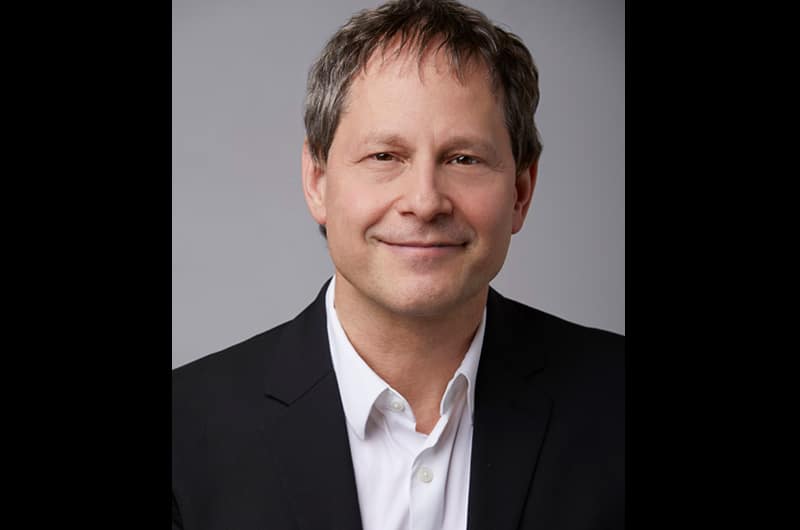THE PRODUCER: J.B. Miller and his brothers all knew the entertainment industry beckoned. (Courtesy Empire)
“Corporate Events” no longer seen in negative light
Empire Entertainment is marking its 30th anniversary of producing and booking top acts for public and private events.
CEO and founder J.B. Miller helms the company of more than 80 employees.
He and Empire have produced events for corporations, associations, not-for-profit and non-governmental organizations and individuals.
Galas, pre- and post-show parties are among the events Empire has produced for a client list that includes Adidas, the TIME 100 Gala, the Tribeca Film Festival, the Sports Illustrated Swimsuit Issue launch, the Webby Awards, the White House U.N. General Assembly Head of State Reception, the Clinton Global Initiative’s Global Citizen Awards, the Gotham Awards and others. The company brings to bear star talent including Adele, Bono, Beyoncé, Justin Timberlake, Jay-Z, Bruce Springsteen, Alicia Keys, Bruno Mars, Sting, Andrea Bocelli, Kanye West, Taylor Swift, Rihanna, Stevie Wonder, Jerry Seinfeld, Billy Crystal, Jon Stewart, Stephen Colbert, Jimmy Fallon and David Copperfield.
A New York native who graduated from NYU and now resides in Larchmont, New York, Miller is the brother of film director Bennett Miller (“Capote” and “Moneyball”). His other brother Theodore runs Empire Entertainment Japan.
“We were fortunate in that from a very young age we knew exactly what we’d like to do, which is put people together around creative projects,” he said.
After NYU film school, Miller earned an MBA and went on to make television programs, concerts and movies. He worked for MTV in its early days, for Ron Delsener and helped found Overland Entertainment. He has worked on Broadway and off-Broadway productions and managed artists, all leading to founding of Empire in 1993.
Miller spoke with VenuesNow about the recent and current Empire projects and trends in the private and public event space:
VenuesNow: What are some of the projects you have going right now?
J.B. Miller: We just produced a summit for a real estate technology company at a venue called Center 415; the Fox upfront at Hammerstein Ballroom; Keith Urban at the Chicago Theatre for a corporate audience. We were out in Salt Lake City with Sheryl Crow doing another private event.
Has the corporate event segment been growing?
Oh certainly. People use that term “corporate events,” but if you take your magnifying glass out and look at it, there are business-to-business events like the up fronts, where you’re presenting to a business audience and making your business case, or it might be an internal communications meeting, a management retreat, a sales conference or many others. And then you have business-to-consumer which is experiential marketing, presence marketing, a pop-up at Coachella or SXSW or whatever. All of that falls under the corporate umbrella, but if you look at a major corporation, take a PepsiCo for example, the size and scale of the event activity of these multinational businesses and what they do every day, in every B2B or B2C setting, in every country, every not-for-profit vertical, in everything that the CEO believes in, and everything that they do to advance, for example, diversity equity and inclusion, it’s staggering. There’s just a huge amount of activity and anybody or any entity that’s trying to accomplish something at scale or make a difference or have an impact or launch a product or whatever, you need a producer. You need somebody that knows how to bring audience together, tell an inspiring story and narrative, orchestrate the logistical, technical and creative elements and deliver the product. They can’t do what they do without us.
Are corporations with employee bases as big as PepsiCo’s like a microcosm of the general population?
People used to think of corporations as this monolithic idea representing one profit-making corporate objective, and associating with these gave entertainers and celebrities pause. Now you see brands Nike Jordan Brand made uop of all kinds of employees and leadership who reflect the diversity and ethos of their consumers. It’s much easier now to align celebrities with brands.
Do corporate events get put together in secret. It seems those behind them don’t to be public facing at all.
You’re very perceptive (laughs). It’s not that we don’t want to be public facing. We are producers, but also hard-working humans and we shine when we get recognition like everyone else. The issue is that the clients really don’t want us to outshine what they’re doing. They’re hiring us to do something for them and if it’s public facing they want the story and the narrative to be about the product they’re launching or the initiative that they’re doing, not about the company that they hired to help them do it. It’s a paradox. On the one hand, we produce some of the most noteworthy, attention-getting events in the world and on the other hand we’re often asked to tay in the shadows behind the scenes and backstage.







